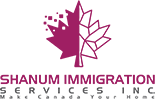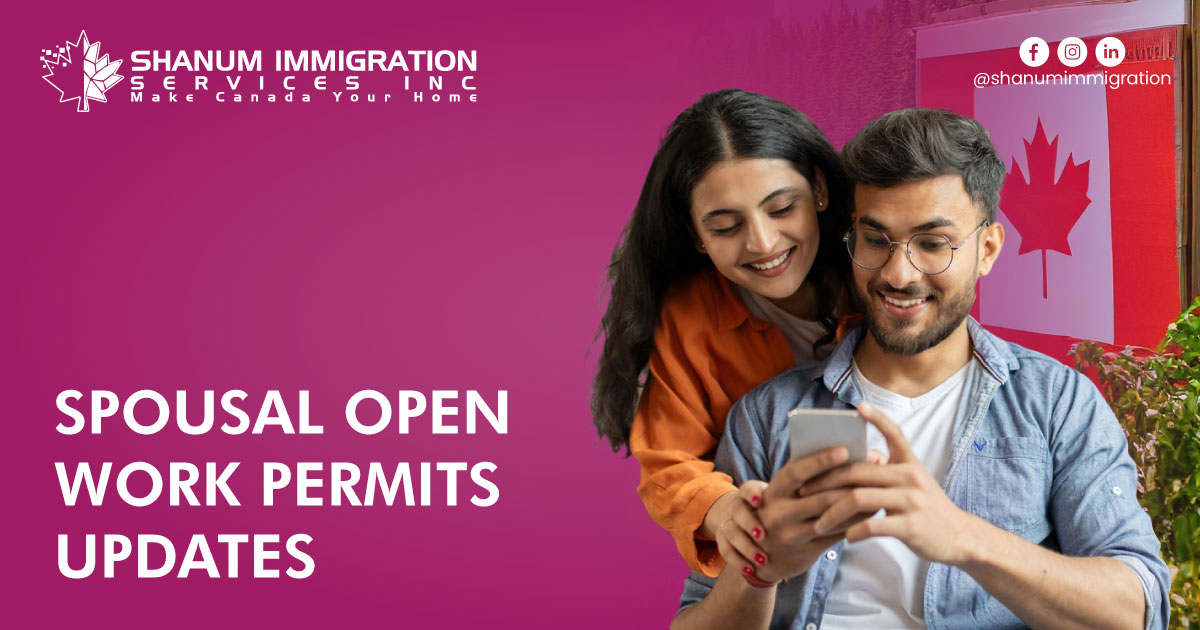Spousal Open Work Permits Eligiblity Updates
Canada always thrives to provide the best opportunities for aspiring immigrants, students, and workers, as such devising new policies often to adapt to evolving needs and challenges. Recently, Immigration Refugees and Citizenship Canada (IRCC) introduced significant changes to the eligibility criteria for Spousal Open Work Permits (SOWP) for partners of international students. These modifications aim to address concerns regarding program integrity while ensuring that families remain a priority in the immigration process. This adjustment aims to mitigate the exploitation of the system while ensuring that legitimate applicants receive the necessary support. Let’s explore the latest requirements and guidelines concerning Spousal Open Work Permits.
Revised Eligibility Criteria:
As of March 19, 2024, partners of students pursuing master’s or doctoral degrees at recognized universities or polytechnic institutions in Canada will be eligible for an Open work permit. Contrary to this, partners of students pursuing studies in undergraduate and college programs are no longer eligible for SOWPs. However, exceptions exist for spouses of undergraduate students enrolled in specified professional degree programs, such as Dentistry, Medicine, Law, and Engineering, among others. To Obtain an open work permit as a spouse or common-law partner of an international student in Canada must meet the following guidelines:
Eligibility Criteria:
Applying on or after March 19, 2024:
Spouses or common-law partners seeking an open work permit must apply under the updated regulations.
According to the updated regulations, spousal open work permits will only be issued for international students who are studying in specific programs, namely:
-
- A master’s or PhD program in a university or polytechnic institution; or
- Students of specific professional degree programs, namely:
- Doctor of Dental Surgery.
- Bachelor of Law or Juris Doctor.
- Doctor of Medicine.
- Doctor of Optometry.
- Pharmacy.
- Doctor of Veterinary Medicine.
- Bachelor of Science in Nursing.
- Bachelor of Education.
- Bachelor of Engineering.
Application before March 19, 2024:
Applicants who submitted their open work permit applications before this date should follow the previous guidelines. Individuals who applied for SOWPs before March 19 remain eligible if their partner holds a valid study permit, is eligible for a post-graduation work permit (PGWP), or is enrolled as a full-time student at specified educational institutions. These criteria also apply to current SOWP holders seeking to extend their permits.
Extension Applications:
Those looking to extend their existing open work permits under this stream must ensure they meet the requirements. Those who already have an SOWP, they are eleiglbe to extend provided the student spouse has a valid status and meeting the eligiblity foro PGWP. If you haven’t yet applied for the SOWP or will be applying after March 09 for the first time SOWP, then the student needs to be enrollled in an eligible program so that your spouse or common-law partner becomes elegible to receive an SOWP. At the Bachelor level, eligible programs include Bachelor of Law, Bachelor of Science in Nursing, Bachelor of Education, and Bachelor of Engineering.
Documentation Requirements:
Applicants for SOWPs must provide evidence of their relationship with the student as well as proof of the student’s enrollment in a degree-granting program. Acceptable documents include a valid Letter of Acceptance (LOA) from a Designated Learning Institution (DLI), proof of enrollment letter, or transcripts from the student’s current program.
Work Permit Duration:
Typically, the duration of the open work permit granted to spouses or common-law partners aligns with the validity period of the student’s study permit. This synchronization facilitates smoother transitions for families and allows partners to pursue their professional goals while accompanying their loved ones during their academic journey in Canada.
Alternative Work Permit Options:
If the eligibility criteria for an open work permit are not met, there are alternative avenues to explore. Applicants can explore other types of work permits available in Canada, ensuring they find the most suitable option to match their skills and employment aspirations.
Ineligible spouses may also have the option to apply for a visitor visa (TRV). However, it’s important to note that visitors to Canada are not permitted to work. Despite these changes, IRCC remains committed to promoting family reunification through appropriate immigration channels.
Employment Restrictions:
While the open work permit grants flexibility to work for any employer in Canada, there are exceptions. Certain employers listed as ineligible due to non-compliance with conditions or offering services such as striptease, erotic dance, escort services, or erotic massages are excluded from employment opportunities under this permit.
Conclusion:
Canada’s provisions for spouses and common-law partners of international students reflect its commitment to fostering inclusive communities and supporting family unity. The availability of open work permits offers a pathway for partners to engage in the Canadian workforce, contribute to the economy, and enrich their overall experience in the country. By understanding the eligibility criteria, duration, and alternative options, spouses and common-law partners can navigate their employment journey with confidence while accompanying their loved ones on their educational pursuits in Canada.
The recent adjustments to SOWP eligibility for partners of international students reflect a concerted effort to balance immigration integrity with family reunification objectives. By staying informed and adhering to updated guidelines, individuals can navigate these changes effectively and pursue their aspirations within the Canadian context.


Add Comment